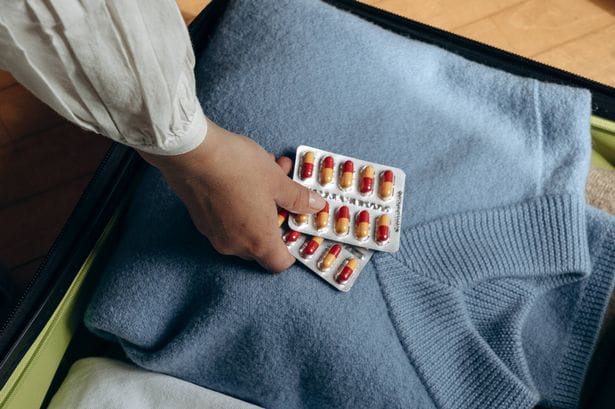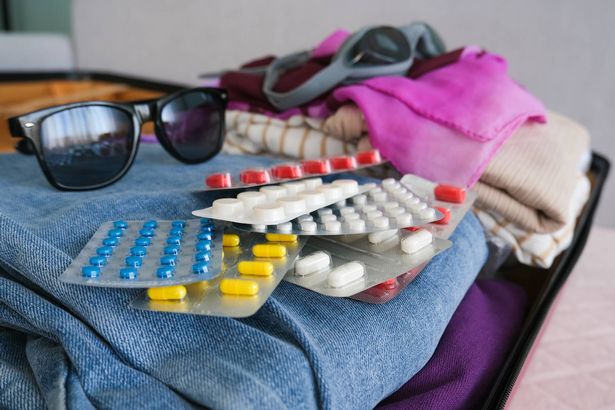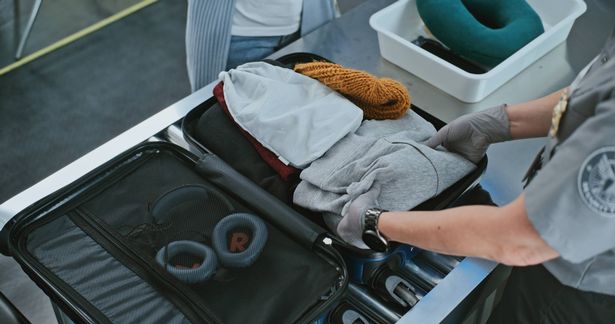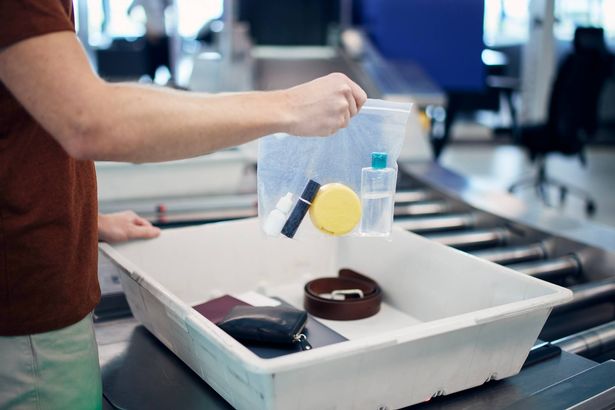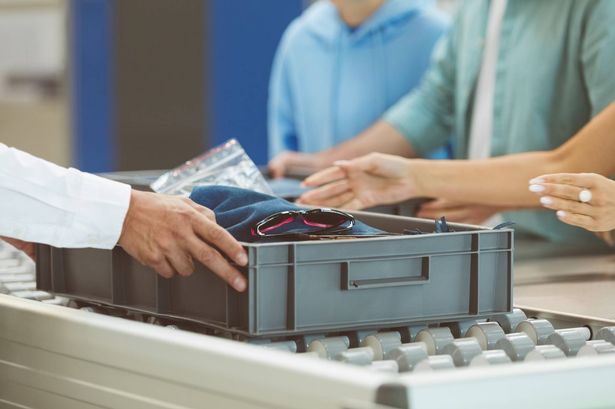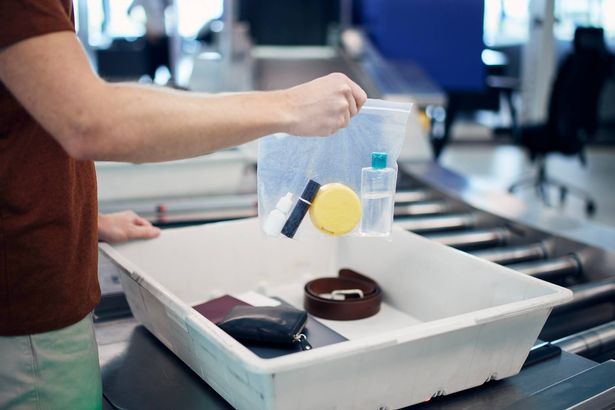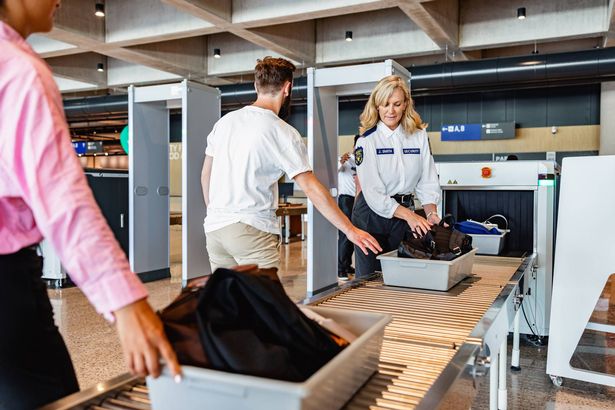Millions of Brits are preparing for summer holidays but a leading pharmacist is warning that some everyday UK prescriptions could be banned overseas
As the UK anticipates the summer holiday season, a leading pharmacist has issued a crucial warning to those planning to travel with medicines. Peter Thnoia of PillTime urges holidaymakers to think ahead or face potential complications due to stringent drug regulations in various destinations.
Highlighting that common UK prescriptions could be prohibited abroad, Peter is alerting travellers about the danger of leaving medication arrangements to the last minute. With school holidays approaching, he stresses the necessity for people to order their medications no less than a fortnight prior to departure.
Peter also underscores the significance of carrying appropriate documents for your medication to avoid the inconvenience of confiscation at the airport. He prompts tourists to research the specific pharmaceutical laws of their destination, particularly as certain meds like Co-codamol may be restricted in some countries, reports the Liverpool Echo.
Peter urges people going abroad to process their prescription orders at least two weeks before their holidays and alert their GP of any unusual early requests. “We’d always recommend people put in their prescription requests around two weeks before, but if you’re ordering earlier than normal, your GP might flag or reject the request,” Peter advises.
“If that’s the case, then you need to contact your GP in good time, explaining your holiday, so they can approve the request.” With over a quarter-century of experience in the pharmacy sector, Peter highlights that many people leave prescriptions until the last minute, causing unnecessary stress before a trip.
“Pharmacies are accustomed to busy periods, but late requests add pressure for everyone,” he said. “Ordering well in advance helps us deliver your medication without any hitches – and gives you peace of mind as your holiday draws near.”
However, it’s not just about timely ordering. Peter also advises travellers on the correct way to carry medication to avoid complications at security or border control.
“Always keep your medication in your hand luggage, in its original packaging with the prescription label intact,” he says. “Security staff may need to verify it, particularly if it’s liquid or regulated,” he added. “If you’re unsure, ask your doctor or pharmacist for a supporting letter. This can be particularly useful when travelling with larger quantities.”
When going abroad with medication, it is essential to confirm that you can transport it legally and safely. Always keep your medication in its original packaging, complete with the prescription label, and include a doctor’s letter if necessary. Make sure to pack your medication in your hand luggage for easy access and to reduce the chances of loss or damage. Review the regulations of the airline and the destination country, particularly concerning controlled substances and liquids exceeding 100ml.
What medication could cause issues?
As the six-week holiday period approaches, Peter shares a simple tip to ensure your holiday goes ‘without a hitch’. He says: “Know the rules of the country you’re travelling to, because you’d be surprised how many everyday tablets are banned or regulated abroad.”
He went on to say: “For example, Co-codamol is available over the counter and in supermarkets here in the UK. But in Greece, the codeine element is treated as a controlled drug – so you can only bring it into the country with a prescription and a doctor’s note.”
Open Prescribing data reveals that more than 3.5 million prescriptions for Co-codamol have been issued in the first quarter of this year (January-March 2025). While lower strengths of Co-codamol can be purchased without a prescription in the UK, higher doses necessitate one.
This implies that millions of Brits who depend on this medication for pain relief could potentially run afoul of foreign laws if they take their medication abroad. Some countries have restrictions or outright bans on drugs like codeine, tramadol, and loperamide.
- Japan: Has intricate regulations concerning prescription and over-the-counter drugs. Some widely used allergy and cold treatments, including those with pseudoephedrine, are either prohibited or necessitate special authorisation. Attempting to bring in banned drugs may lead to arrest.
- Indonesia: Prohibits medications that contain codeine and tramadol.
- Qatar: Certain over-the-counter cold treatments require a prescription.
- India, Pakistan, Turkey: Maintain stringent lists of banned medications, and travellers are advised to consult their respective embassies prior to carrying any drugs.
- United Arab Emirates: Enforces strict regulations on numerous prescription medications, including those with codeine, tramadol, and specific anxiety drugs.
Certain countries also enforce stringent regulations on medications containing pseudoephedrine and other components commonly found in cold and allergy remedies. Pseudoephedrine, a key ingredient in decongestants such as Sudafed, is often regulated due to concerns about its potential misuse in the illegal production of substances, particularly methamphetamine.
What should you do?
Peter recommends: “If you’re unsure whether your medication is restricted in the country you’re travelling to, then check the official embassy website for your destination. It will explain exactly what you can and cannot bring into the country. It’s always best to be safe and check before you travel so that you have all the essential medication you need to make sure your holiday is as enjoyable as possible.”
Do consult with your GP regarding any trips abroad and the medicines you’ll need to bring along. Your doctor can provide a letter explaining why certain medications are necessary and may offer alternative solutions if needed.
Always carry medications in their original containers with labels visible. It’s also wise to request any permits or certificates in good time before setting off. Be prepared for inspections at customs by declaring any medication, which might mean enduring some delays.
